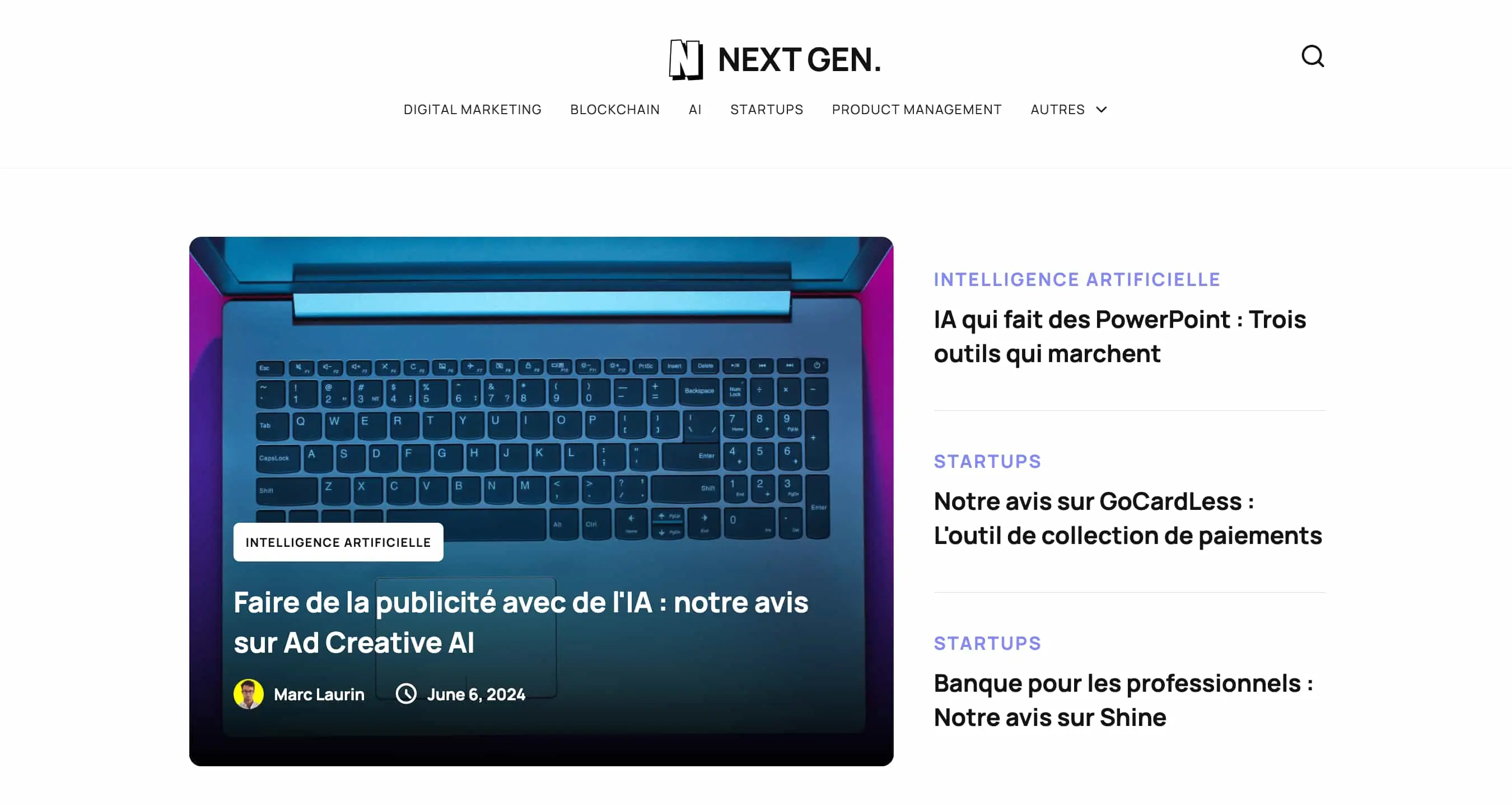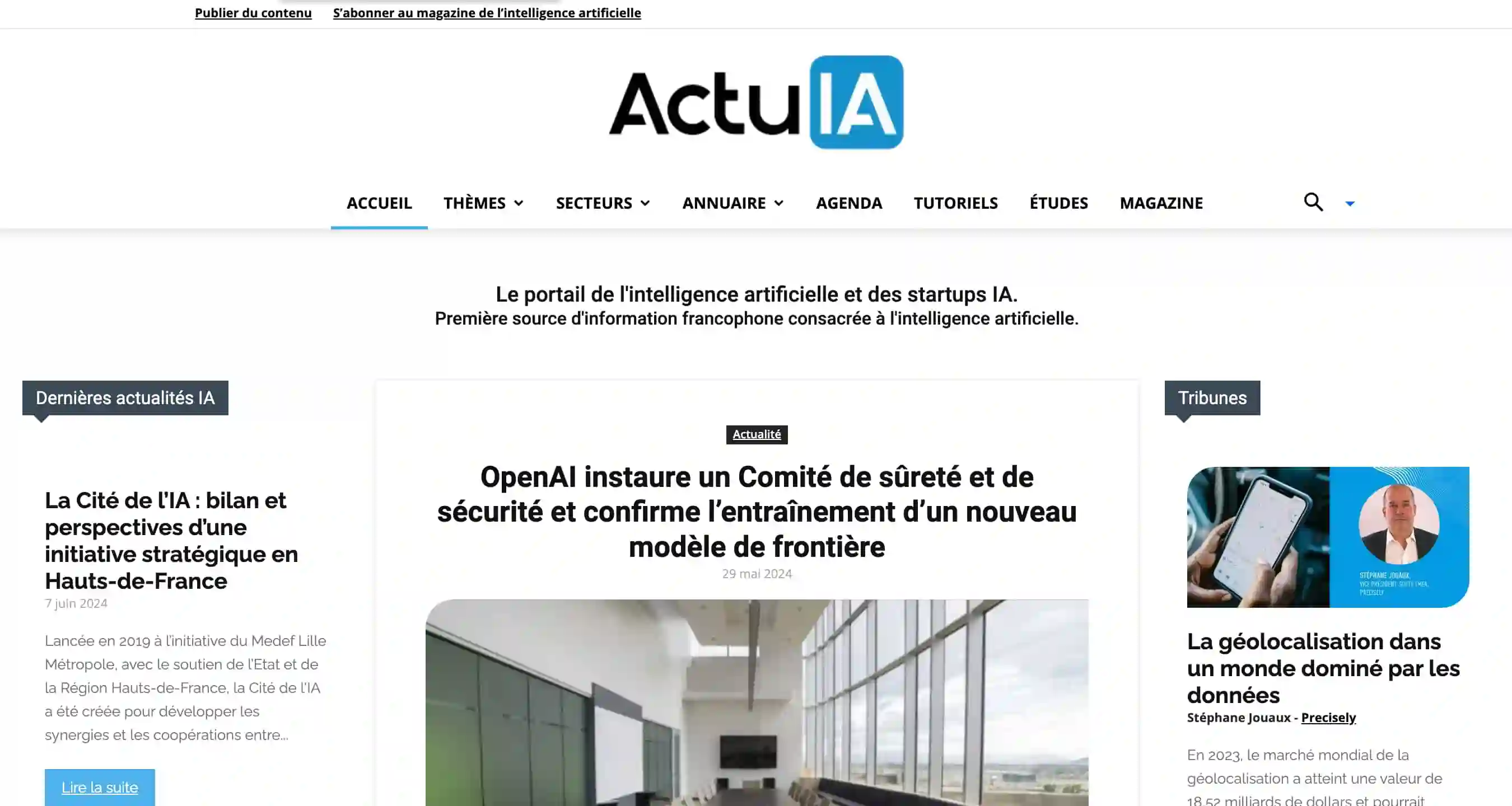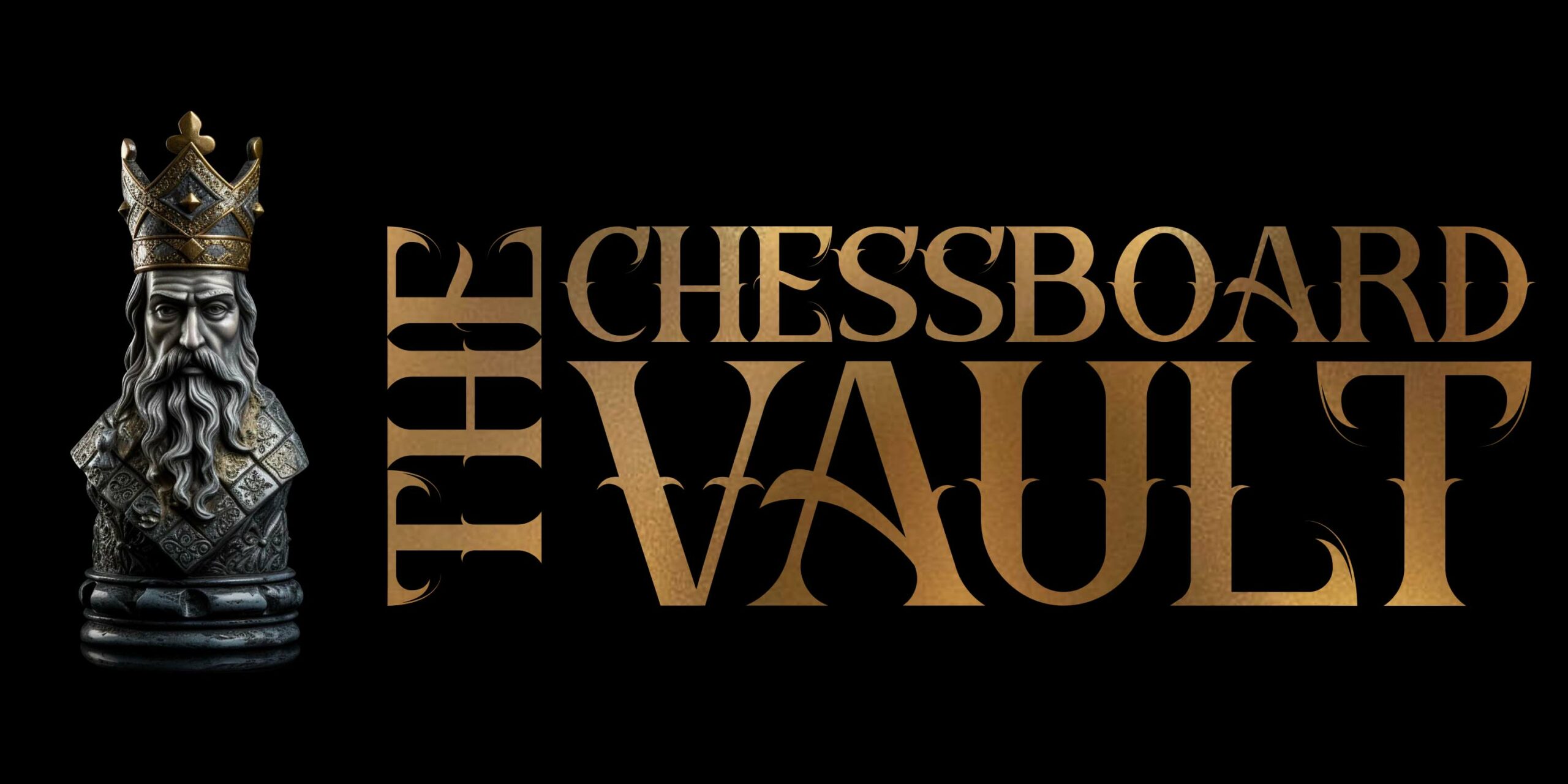Have you ever wondered howartificial intelligence transforms the media you consume every day?
From print media to podcasts, via major broadcast media groups like France Télévisions and BFM TV, AI is transforming the way media content is created, personalized and distributed.
In this article, we take a look at the top 3 media on artificial intelligence and explore how this technology is shaping the future of our media consumption.

1. Next Gen
Next Gen is an innovative platform that delves deep into digital marketing, product management and artificial intelligence. With a team of experts led by digital marketing specialist Marc Laurin and artificial intelligence journalist Caroline Brunneli, Next Gen offers valuable insights for entrepreneurs and startups. Their experts provide quality content that guides aspiring entrepreneurs from concept to realization, enriching their journey to success.

2. ActuIA
ActuIA is the first French-language portal dedicated to artificial intelligence and startups in this field. As an essential source of information, ActuIA brings the latest news, studies, and trends in AI. Their articles cover a wide range of sectors, enriched by specialist contributions and in-depth analyses to enlighten and guide AI professionals.

3. Le Monde Informatique
LeMondeInformatique is the reference for IT and innovation professionals in France. With exhaustive coverage of artificial intelligence, cybersecurity, and other key topics in the digital world, our site provides strategic information and crucial updates for IT decision-makers. Their articles, tutorials and analyses help professionals navigate the ever-changing technological landscape, enhancing their skills and decision-making in the sector.
Improving content production
AI is revolutionizing production in print and broadcast media, enabling editors and presenters to produce high-quality content at an accelerated pace. AI algorithms assist journalists in structuring editorials and composing compelling stories, directly influencing the media market and the notoriety of the media concerned. Editorial departments benefit from a significant increase in productivity, propelling weekly magazines and TV shows to new heights of efficiency.
Personalized user experience
AI is transforming the interaction between media and their audiences, offering unprecedented personalization via recommendations based on the analysis of vast quantities of data. Whether for programs broadcast by public channels or articles in magazines such as Le Figaro, AI enables fine-grained audience segmentation, improving viewer engagement and the effectiveness of advertising campaigns. French media such as Radio France and France Info use AI to tailor their content to the specific preferences of listeners and readers, reinforcing their place in the national media landscape.
Automation and Ethics in Newspaper Production
AI-driven automation relieves journalists of repetitive tasks, allowing them to focus on more in-depth reporting and complex analysis. However, it also raises important ethical questions such as transparency, pluralism and ethics in journalism. Digital media literacy and editorial responsibility become crucial to maintaining credibility and avoiding the spread of fake news.
Protection of privacy and personal data
The collection and analysis of data poses a potential risk to privacy. privacy protection of users. It is crucial that AI-enabled media establish robust protections to safeguard the confidentiality of personal information.
Transparency and algorithmic bias
The transparency of algorithms is essential to maintain public trust. It’s important that users understand how their data is used and how content is generated or personalized by AI.
Editorial responsibility and quality control
Maintain a strong editorial responsibility and rigorous quality control is vital, especially when AI is used to generate or modify media content. Errors can not only damage a media outlet’s credibility, but also spread misinformation.
Towards what future for AI in the media?
L’future of AI in the media is promising, offering unprecedented opportunities for innovation and improvement. However, this future will depend on how these technologies are regulated and ethically integrated, as well as the acceptance and adaptation of professionals and the public to these changes.

